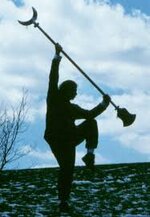A
Alistair Roberts
Guest
Really, it's the boring part but the very necessary part of every story. I've just spent nearly a day getting rid of excess use of the word "that" which has shown 342 of them weren't needed! I've gotten rid of excess "really" and "very" and now I have a heap of other words to check and delete where possible.
One thing I also found was that sometimes I had "that" when it should have been "then." Such is the life of a writer, now back to it. What started out as 106,876 is down to 104,433 and shrinking.
One thing I also found was that sometimes I had "that" when it should have been "then." Such is the life of a writer, now back to it. What started out as 106,876 is down to 104,433 and shrinking.

